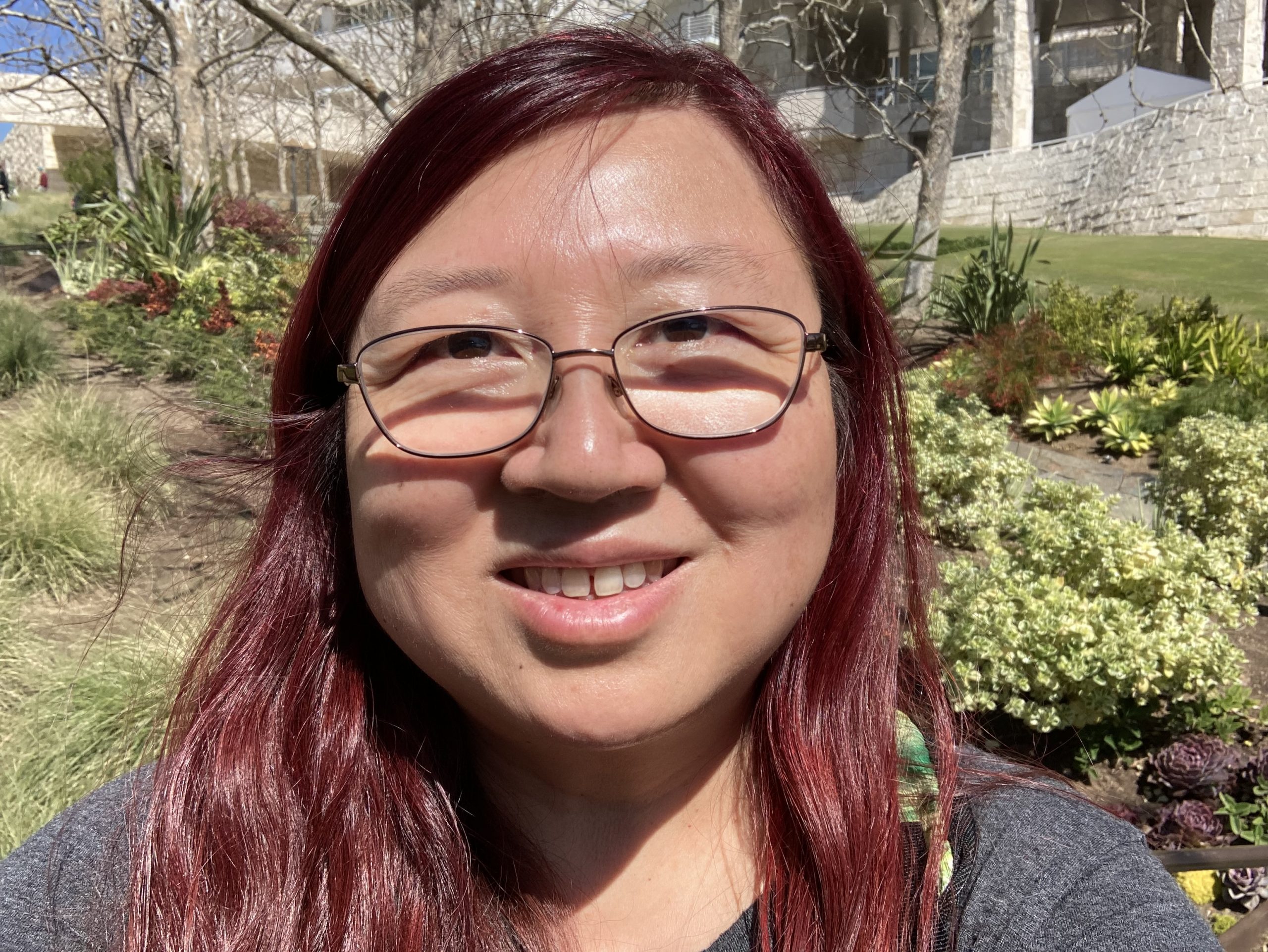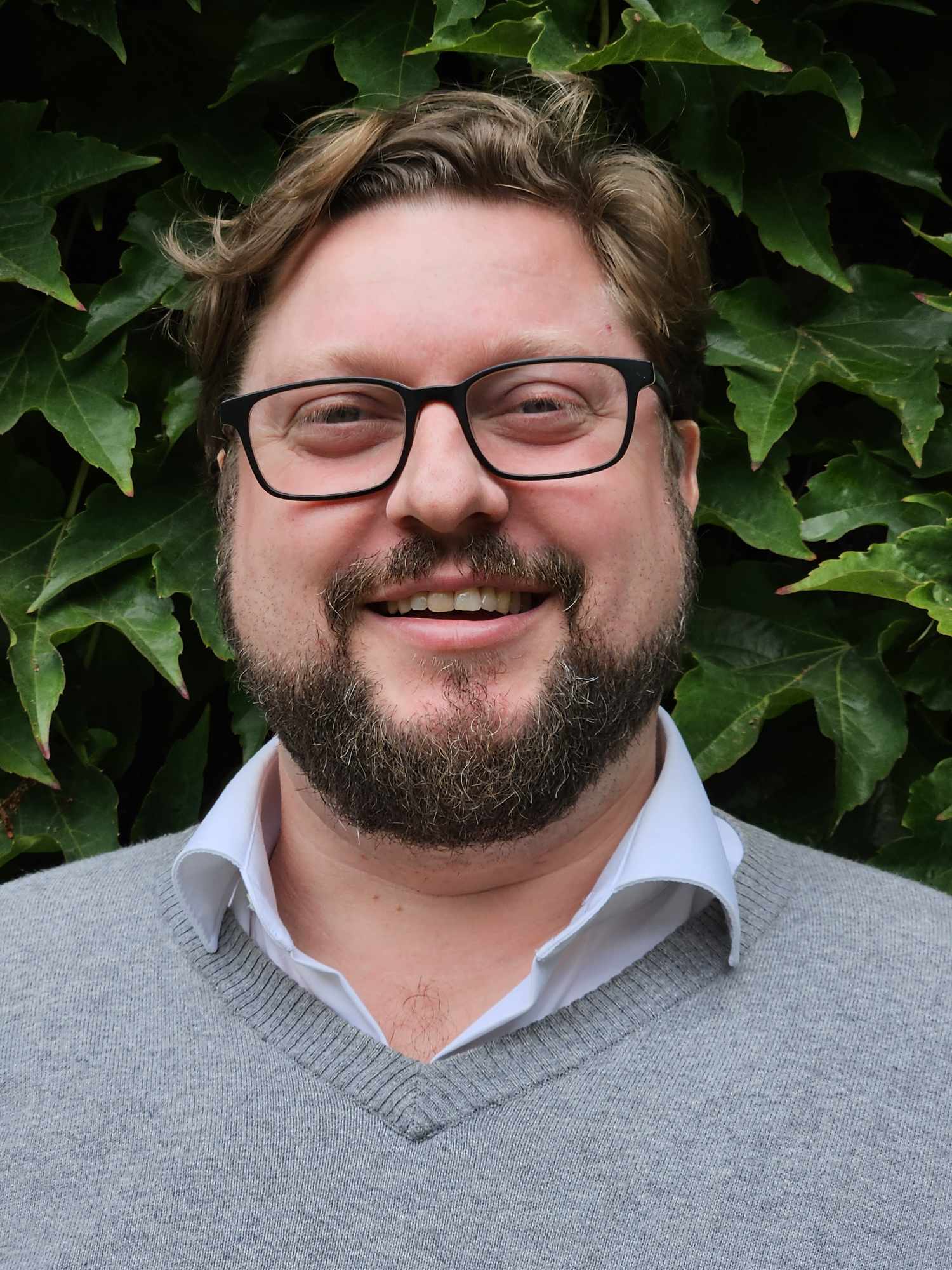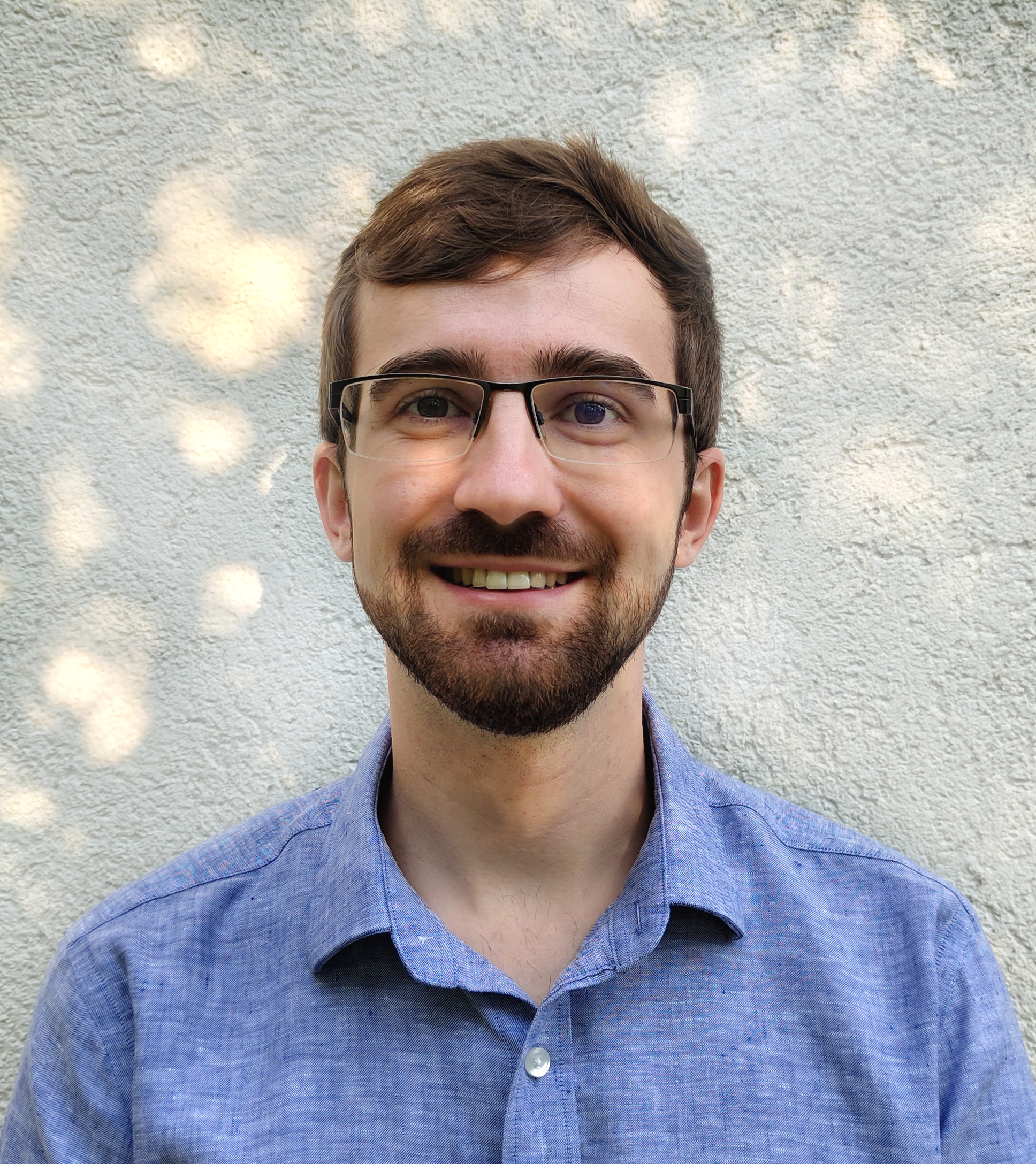Overview
The Herculaneum Papyri, buried by the eruption of Mount Vesuvius in 79 and rediscovered in 1754, constitute the only library from the ancient Mediterranean world (except the library of Ashurbanipal and the Dead Sea Scrolls) that was found in circumstances that preserved it intact. It contains unique works of ancient Greek philosophy and Roman literature. Many of the 800 papyrus-rolls were opened physically (and thereby badly damaged), but around 270 scrolls or parts of them survive in their original condition, being too fragile to be opened.
Since 2005, computer scientist Brent Seales has toiled to discover a way to recover their texts without damaging them. His work entailed using CT technology to separate and flatten digitally the successive circumferences and “unroll” the papyrus digitally on screen. The next problem was how to recognize the ink. The latter problem was resolved in 2024 by Casey Craig’s recognition of ‘crackle’ and then the application of Machine Learning. Upon the initiative of Nat Friedman, who established the Vesuvius Challenge, and with contributions from many members of the international AI community, three contestants, Luke Farritor, Youssef Nader, and Julian Schilliger, won the Grand Prize by producing legible images of Greek text of 16 columns from a roll that is preserved in Paris and was scanned with the Diamond Light Source at Oxford.
Another Grand Prize has been offered for 2024, focused on recovering the text from all four scrolls that are in Paris. This one-day conference is timed to bring together papyrologists and experts in Artificial Intelligence to review the progress that has been made, consider how to address the problems that remain, and to discuss future directions, including the potential for the use of AI in work on other collections of damaged manuscripts and in the humanities more widely. On the following day there will be a workshop to exchange ideas. Solutions to present problems and possible future directions may be clarified by a visit to the unique collections housed in the University of Michigan (807 Hatcher Library), which include Egyptian, Greek, Latin, Coptic, and Arabic writings on papyrus, parchment, wood, lead, waxed tablets, and potsherds, Medieval Greek manuscripts on parchment and paper, and Islamic manuscripts on paper.
Speakers

Dr. David Blank, Professor of Classics and Philosophy; University of California, Los Angeles
David Blank is Distinguished Professor of Classics and Philosophy at UCLA. His work focuses on the philosophy of language and grammar in Greece and Rome, and he has published extensively on the Herculaneum papyri.
Watch: Dr. David Blank’s Presentation

Dr. Mami Hayashida, Research Cyberinfrastructure Architect; University of Kentucky
Originally trained as a classical pianist, Mami Hayashida started working for the University Kentucky ITS Research Computing division in 2018 and has subsequently joined Dr. Brent Seales’s Digital Restoration Initiative research group part-time as an infrastructure/data engineer. During the first three years, she primarily helped improve the accuracy of ML models for detecting invisible ink on fragments through CNN filter visualizations and input and output data analyses. More recently, she has been working on input data processing and organization of the vast collection of data collected over the decades. She also assists CS faculty in guiding undergraduate student researchers. In addition to DRI, she works part-time for the FABRIC Testbed project as a software architect and serves as a system administrator for object storage clusters for research data at the university.
Watch: Dr. Mami Hayashida’s Presentation

Dr. Richard Janko, Gerald F Else Distinguished University Professor of Classical Studies and Professor of Classical Studies, College of Literature, Science, and the Arts; University of Michigan
Richard Janko was born in 1955 in Weston Underwood, England. He studied at Trinity College, Cambridge, where he took part in Lord William Taylour’s excavations at Ayios Stephanos in Laconia and studied with Dr John Chadwick. His scholarship has focused on Bronze Age Greece, Homer, early Greek religion and philosophy, ancient literary criticism, and the reconstruction of ancient books on papyrus-rolls. His first book Homer, Hesiod and the Hymns established by a statistical study of language the relative chronology of the corpus of early Greek epic poetry. His controversial book Aristotle on Comedy argues that a summary of the lost second book of Aristotle’s Poetics on comedy and humour survives in a tenth-century manuscript in Paris. This was followed by an annotated translation of the Poetics itself. He wrote the Cambridge commentary on Homer’s Iliad 13–16 in the series edited by Geoffrey Kirk. In 2008 he published the excavations at Ayios Stephanos, which clarify relations between Minoan Crete and Mycenaean Greece. His reconstruction and edition of Philodemus’ On Poems Book 1 in 2000 won the Goodwin Award of Merit from the American Philological Association. In 2011 he published On Poems Books 3 and 4, which critiques Aristotle’s lost dialogue On Poets. His edition of On Poems Book 2, which rebuts the previously unknown euphonist critics Heracleodorus and Pausimachus, appeared in 2020. He is working on new editions of the Derveni papyrus and Aristotle’s Poetics. He is currently the Gerald F. Else Distinguished University Professor of Classical Studies at the University of Michigan. He previously taught at St. Andrews, Columbia University, UCLA and University College London. He has held visiting professorships at the American School of Classical Studies in Athens and at the Aristotelian University of Thessaloniki. He was elected to the American Academy of Arts and Sciences in 2006, the American Philosophical Society in 2009, and the Academy of Athens in 2017.
Watch: Dr. Richard Janko’s Presentation

Dr. Jing Liu, Executive Director, Michigan Institute for Data and AI in Society; University of Michigan
As the MIDAS Executive Director, I oversee the operations of the institute and the staff team. I also design programs and projects to enable groundbreaking research, build interdisciplinary teams, strengthen research skills, improve the rigor and reproducibility of research, and ensure the responsible use of data and AI, all for the purpose of maximizing the scientific impact of data science and AI. In addition, I build partnerships with academia, industry, government and community organizations, both for research collaboration and for maximizing the societal impact of data science and AI. Working with colleagues at data science institutes across universities, I seek to improve how academic researchers adopt the rapidly evolving data and AI methodologies, and support data- and AI-enabled decision making in the public and private sectors.
I also co-direct our two postdoctoral training programs, the Michigan Data Science Fellows Program; and the Eric and Wendy Schmidt AI in Science Postdoctoral Fellowship, a Schmidt Futures Program.
My research interest includes examining the data science and AI research infrastructure and research rigor and reproducibility, and using data and AI to support decision making.

Dr. Michael McOsker, Papyrology Researcher, University College London
Abstract: As soon as the papyri were discovered in 1752, the majority of them were opened and studied, so we now know quite a bit about the library. In this paper, I provide a summary of what we know about the library from the opened rolls. This will guide our expectations for new discoveries as well as show the importance of the Herculaneum libraries to Classical studies and ancient philosophy.
Michael McOsker is a researcher in papyrology at University College London in the “Hexameters Beyond the Canon” project. Previously, he was an Alexander von Humboldt postdoctoral researcher at the Universität zu Köln. He has published widely on the Herculaneum papyri and related topics, including On the Good Poem According to Philodemus (Oxford 2021), an edition and translation of Philodemus’ On Anger (with David Armstrong), and a number of shorter papers on prose style and other papyri.
View Dr. Michael McOsker’s Presentation

Youssef Nader, AI Researcher; PhD student, Freie University;
Winner of the 2023 Vesuvius Challenge Grand Prize
Youssef Nader is an Egyptian AI researcher and a graduate student at the Freie University in Berlin. He works on the intersection of explainable AI, machine learning, self-supervised learning and swarm intelligence.Youssef enjoys competing in AI challenges tackling different problems, and has won multiple awards in the fields of computer vision and natural language processing.
In 2023, Youssef was one of the first people to use AI to read inside a 2000 year old burnt Greek scroll, uncovering 10 letters.
Following on with that success he later led the winning team of the Vesuvius Grandprize and was able to recover more than 2000+ letters from inside the carbonized scroll.
In his free time, Youssef enjoys creative writing, poetry, and inventing new recipes.
Watch: Youssef Nader’s Presentation

Dr. Federica Nicolardi, Assistant Professor of Papyrology; University of Naples Federico II
Federica Nicolardi is Assistant Professor of Papyrology at the University of Naples Federico II and a member of the Centro Internazionale per lo Studio dei Papiri Ercolanesi ‘M. Gigante’. Her research primarily focuses on the Herculaneum papyri, with a special emphasis on critical editions and virtual restoration techniques. She is the PI of RECREATE – REConstructing papyrus scrolls and REcovering Ancient TExts with the aid of a new digital tool, funded by the Fritz Thyssen Foundation. She has been collaborating with Brent Seales’ project on ‘Digital Restoration of Herculaneum Papyri’ (University of Kentucky) and she is part of the Papyrology team of the Vesuvius Challenge (scrollprize.org).
Watch: Dr. Federica Nicolardi’s Presentation

Julian Schilliger, Research and Development Specialist; Scroll Prize Inc.
Winner of the 2023 Vesuvius Challenge Grand Prize
Digital Unrolling: Revealing the Secrets of the Herculaneum Papyri
Delve into the revolutionary process of virtual unwrapping, where modern algorithms reveal ancient wisdom. Discover the future of papyrology through recent advancements and ongoing research.
Julian Schilliger is a Digital Archeologist. Digital archeology started for him as a balance during his studies at ETH Zurich (BSc Computer Science, MSc Robotics) and became a full-time job after winning the Vesuvius Challenge. He develops software that restores CT scans of ancient, rolled-up scrolls. He enjoys working with visual computing, machine learning and algorithms of all kinds. He develops new algorithms most efficiently outdoors in nature, for example on a hike.
Watch: Julian Schilliger’s Presentation

Dr. Brent Seales, Stanley and Karen Pigman Heritage Science Chair; Director of Graduate Studies, Data Science; University of Kentucky
Dr. W. Brent Seales is the Stanley and Karen Pigman Chair of Heritage Science and Professor of Computer Science at the University of Kentucky. He earned a Ph.D. in Computer Science at the University of Wisconsin-Madison and has held research positions at INRIA Sophia-Antipolis, UNC Chapel Hill, Google (Paris), and the Getty Conservation Institute.
The Heritage Science research lab (EduceLab) founded by Seales at the University of Kentucky applies techniques in machine learning and data science to the digital restoration of damaged materials. The research program is funded by the National Science Foundation, the National Endowment for the Humanities, the Arts and Humanities Research Council of Great Britain, the Andrew W. Mellon Foundation, and Google.
Seales is a co-founder of the Vesuvius Challenge, an international contest formed around the goal of the virtual unwrapping of Herculaneum scrolls. He continues to work with challenging, damaged material (Herculaneum Scrolls, Dead Sea Scrolls), with notable successes in the scroll from En-Gedi (Leviticus), the Morgan MS M.910 (The Acts of the Apostles), and PHerc.Paris.3 and 4 (Philodemus / Epicureanism). The recovery of readable text from still-unopened material has been hailed worldwide as an astonishing achievement fueled by open scholarship, interdisciplinary collaboration, and extraordinary leadership generosity.
Watch: Dr. Brent Seales’s Presentation

Dr. Seth Parker, Project Lead, Digital Restoration Initiative; University of Kentucky
Seth oversees the day-to-day aspects of software development and works with students to plan and implement technical goals. Having been with the project since 2012, Seth was pivotal in the development of the virtual unwrapping software pipeline. While his interest in computer science pushes him to test the limits of technical achievement, his background in the humanities and media production brings with it a strong desire to restore the knowledge trapped inside ancient documents.
Watch: Dr. Seth Parker’s Presentation
Schedule
9:50 am Opening Remarks
Richard Janko & H.V. Jagadish, University of Michigan
First Session: Past Achievement (10:00 am–12:00 pm)
Presider: Arthur Verhoogt, Classical Studies, University of Michigan
The Herculaneum Papyri and their Unrolling from 1754: problems and methods
David Blank, UCLA [on history of unrolling]
Eye on the Papyrus: Role and Challenges of Papyrological Expertise from the Facsimiles to AI-enabled Virtual Unwrapping of Herculaneum Rolls
Federica Nicolardi, University of Naples
Herculaneum: The Unrolled Scrolls
Michael McOsker, University of London [on contents of the library]
Lunch 12:00 – 1:30 pm
Second Session: Present Problems (1:30–3:30 pm)
Presider: Brent Seales, Computer Science, University of Kentucky
Detecting Ink and Reducing Noise via Machine Learning
Youssef Nader (Computer Science, Berlin)
Mami Hayashida, University of Kentucky
Segmentation: Problems and Solutions
Julian Schilliger (Basel)
Seth Parker (University of Kentucky)
Third Session: Future Prospects (4:00–5:30 pm)
Presider: Jing Liu, Data Science, University of Michigan
Virtual Unwrapping, AI, and the Frontier of Non-Invasive Imaging
Brent Seales, University of Kentucky
What Else can we Discover from the Villa, the Library, and from Elsewhere?
Richard Janko, University of Michigan
Discussion: How to Get the Job Done with AI, and Where to Go Next?
5:30 Reception
7:00 Dinner for the speakers and organizers at the Mediterrano
9:30-10:15 am: Visit Papyrology Collection; 807 Hatcher
10:30-12:30 pm: Workshop on finding ink and segmentation in a sample column
Lunch at Cafe Zola to follow
Organizer

Dr. Richard Janko
Gerald F Else Distinguished University Professor of Classical Studies and Professor of Classical Studies, College of Literature, Science, and the Arts; University of Michigan
Co-hosting Unit

Questions? Contact Us.
Message the MIDAS team: midas-contact@umich.edu